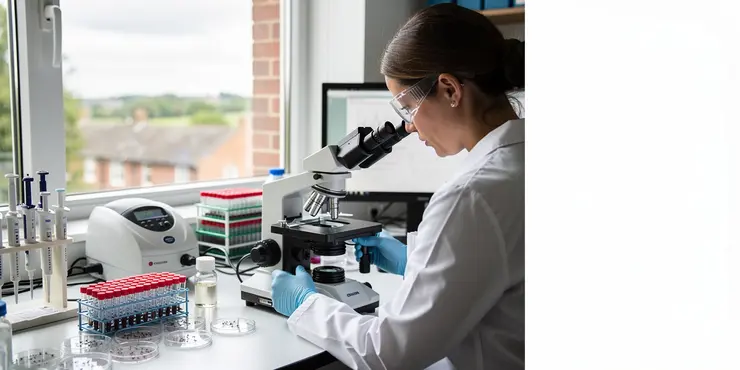
Find Help
More Items From Ergsy search
-
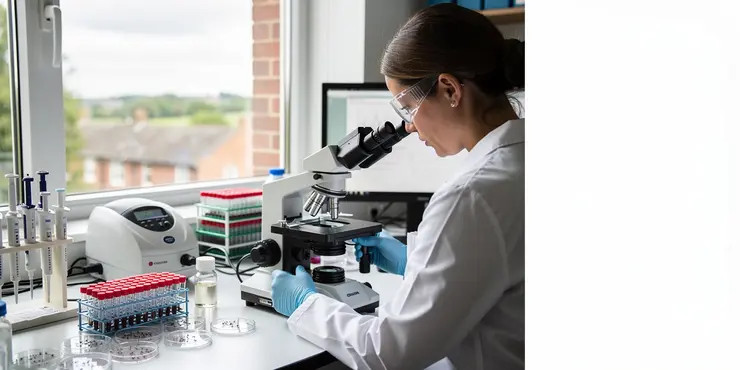
What research is being conducted on mosquito-borne diseases in the UK?
Relevance: 100%
-
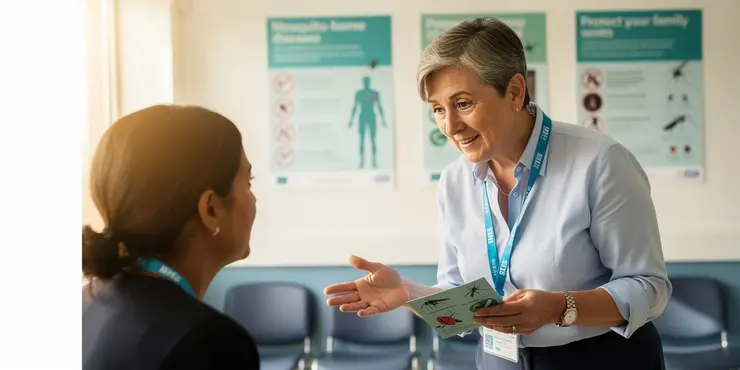
Are there any new mosquito-borne diseases emerging in the UK in 2025?
Relevance: 80%
-
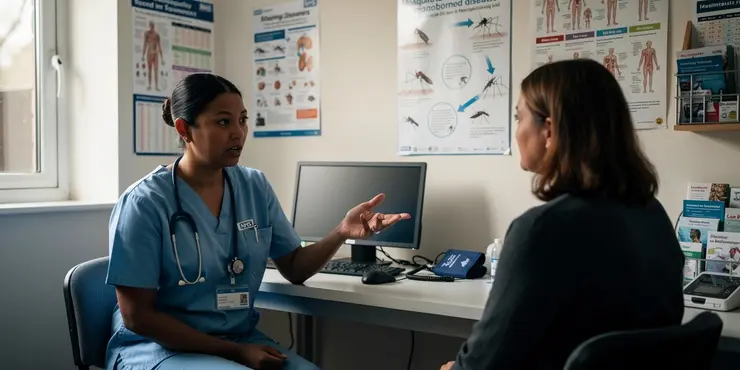
What regions of the UK are most affected by mosquito-borne diseases?
Relevance: 78%
-

Is there a season when mosquito-borne diseases are more likely in the UK?
Relevance: 76%
-
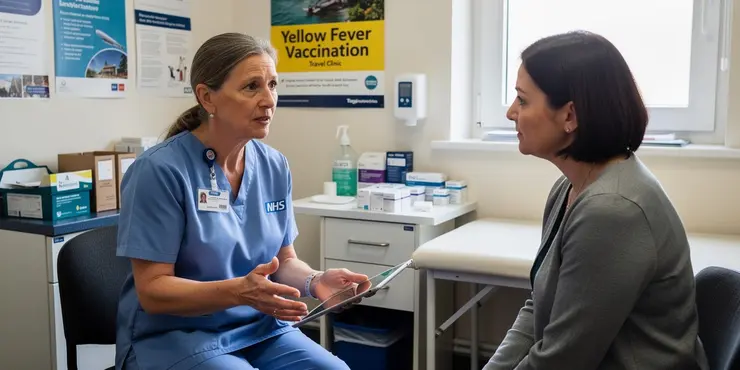
Are any vaccines available in the UK for mosquito-borne diseases?
Relevance: 69%
-

What symptoms should I watch for if I suspect a mosquito-borne disease?
Relevance: 61%
-

What diseases are spread by mosquitos in the UK in 2025?
Relevance: 57%
-
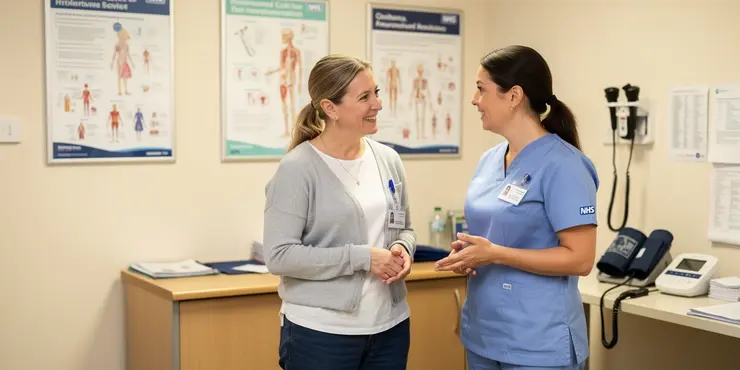
Do UK mosquitoes carry diseases?
Relevance: 57%
-
Can mosquitoes transmit any bacterial diseases in the UK?
Relevance: 56%
-

What measures are being taken to prevent mosquito-borne diseases in the UK?
Relevance: 53%
-
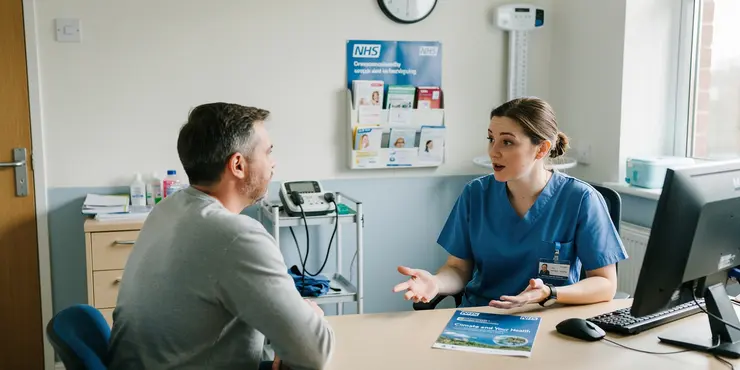
How do climate changes affect mosquito-borne diseases in the UK?
Relevance: 51%
-
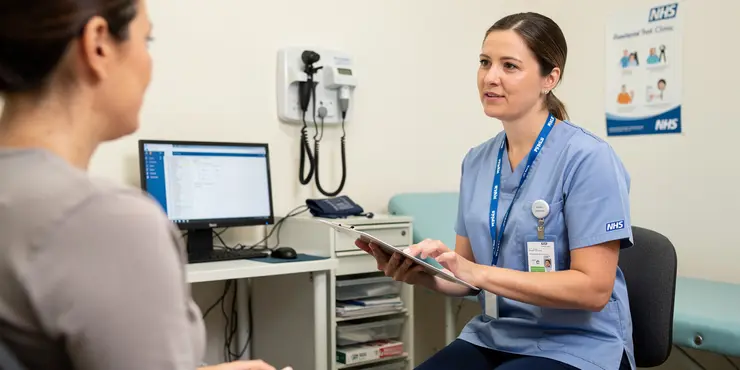
What should travelers to the UK know about mosquito-borne diseases?
Relevance: 50%
-
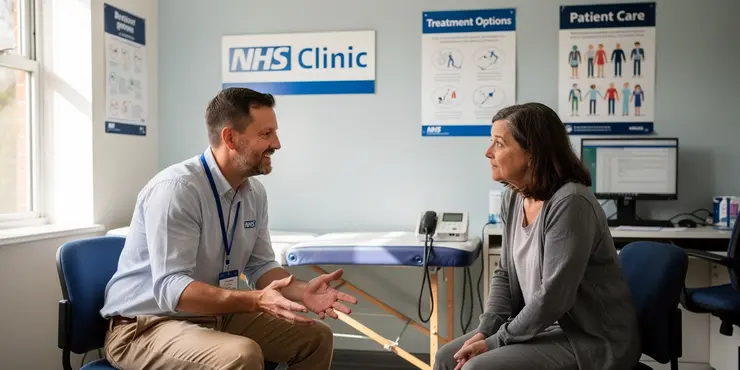
What research is being done on Huntington's disease?
Relevance: 47%
-
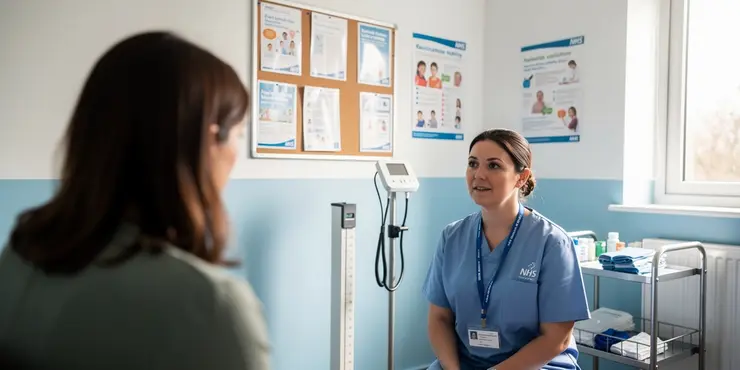
Are there any government initiatives to control mosquitoes in the UK?
Relevance: 45%
-
Do all mosquitoes in the UK carry diseases?
Relevance: 45%
-
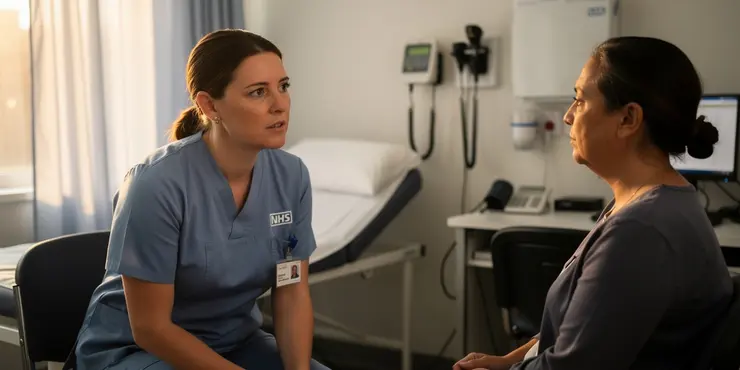
Why is the UK cutting funding to AIDS, Tuberculosis, and Malaria research?
Relevance: 43%
-

How common is Alzheimer's disease in the UK?
Relevance: 41%
-

Can dengue fever be contracted in the UK?
Relevance: 37%
-
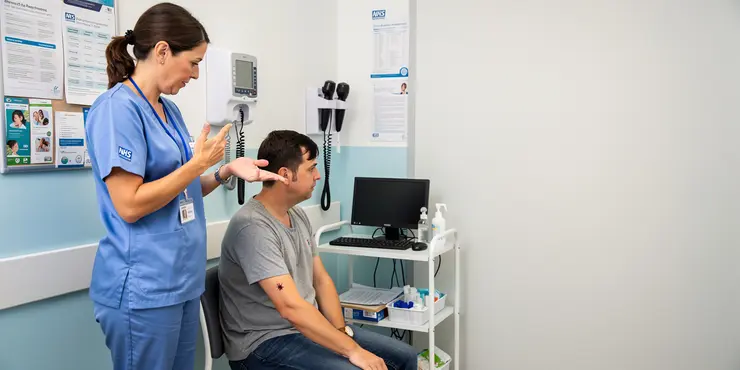
Do spiders in the UK carry diseases?
Relevance: 36%
-
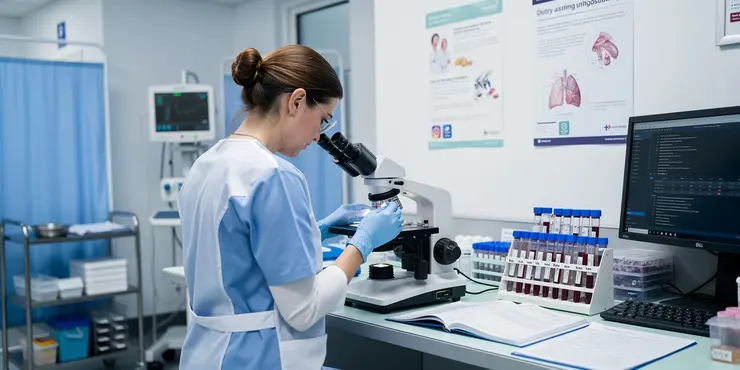
Idiopathic pulmonary fibrosis (IPF) research
Relevance: 36%
-
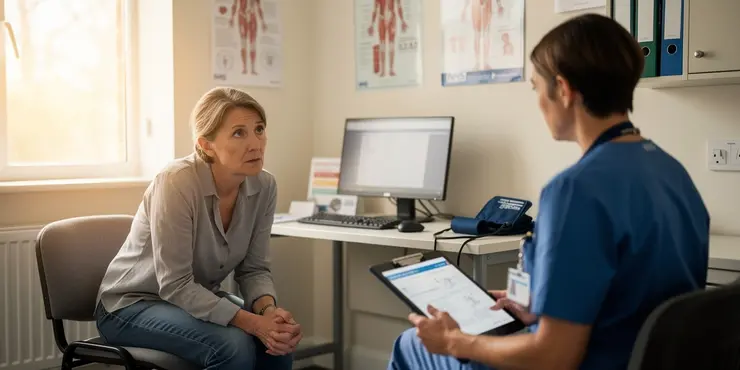
What support is available for people with Crohn's disease in the UK?
Relevance: 35%
-
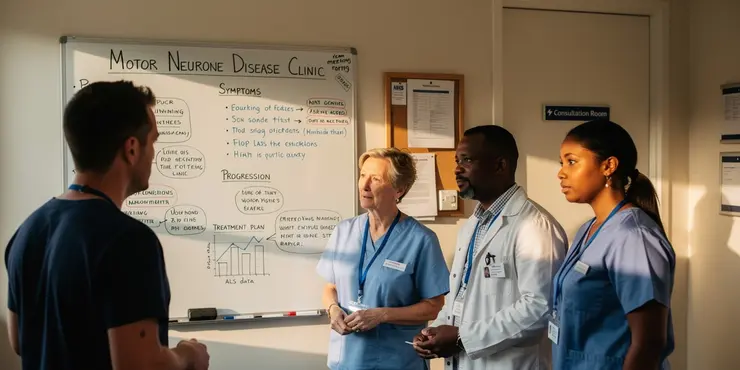
What research is being done on motor neurone disease?
Relevance: 35%
-
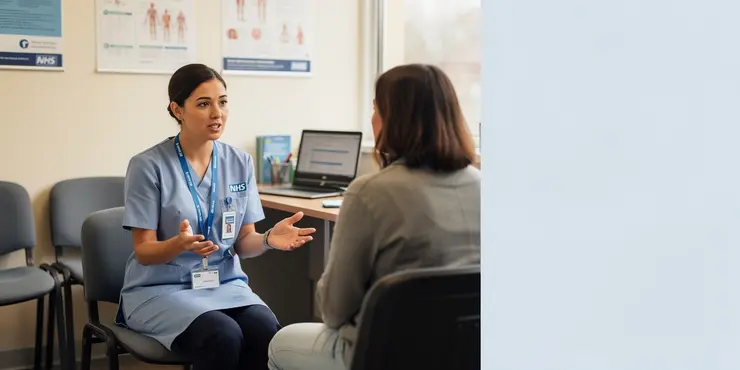
How significant is the reduction in funding for AIDS, Tuberculosis, and Malaria research?
Relevance: 34%
-

What global organizations are involved in Nipah Virus research?
Relevance: 33%
-
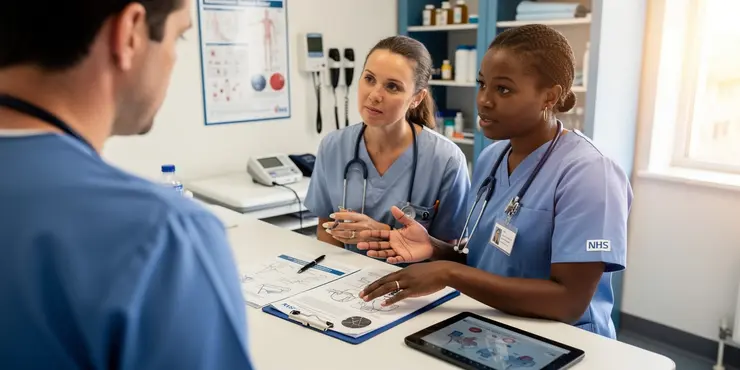
What research is being done on the Marburg virus?
Relevance: 33%
-
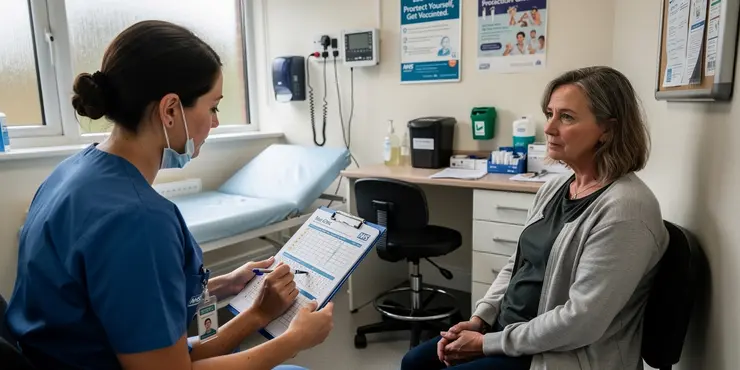
Is there a risk of yellow fever being spread by mosquitoes in the UK?
Relevance: 32%
-
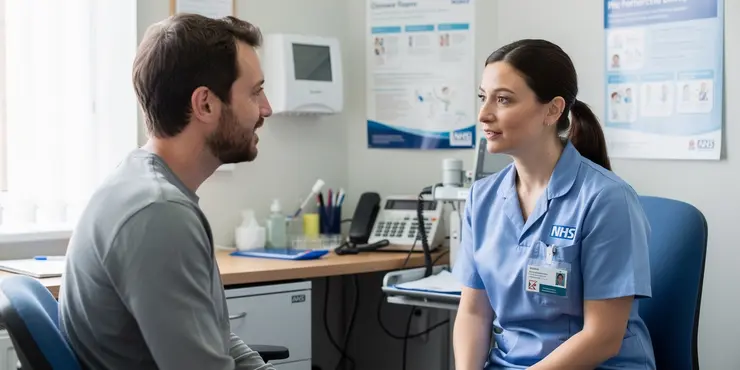
Are UK mosquitoes capable of transmitting Zika virus?
Relevance: 31%
-
Has research been conducted on the Nimbus variant?
Relevance: 30%
-
Is there research being done on mitochondrial disease?
Relevance: 30%
-
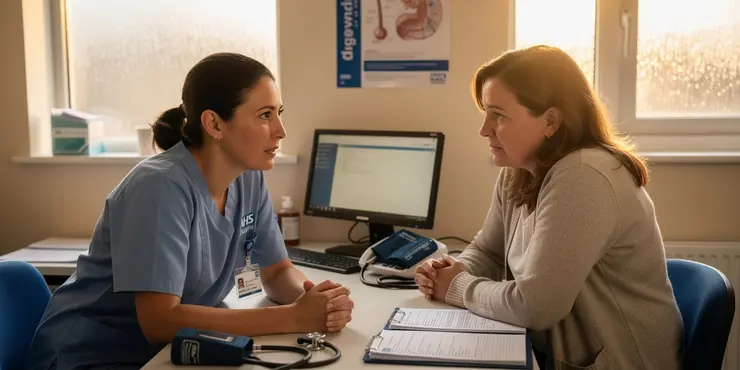
Is there a vaccine for Lyme disease?
Relevance: 30%
-
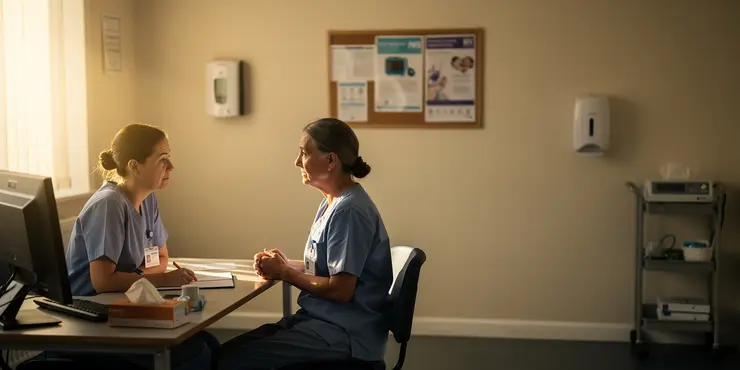
Can Huntington's disease be cured?
Relevance: 30%
-
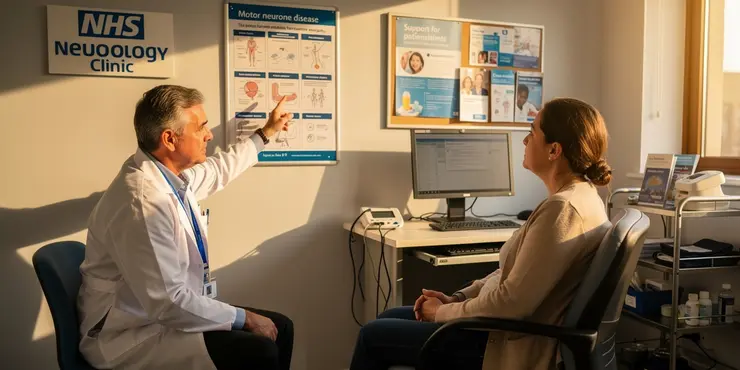
Is there a cure for motor neurone disease?
Relevance: 30%
-
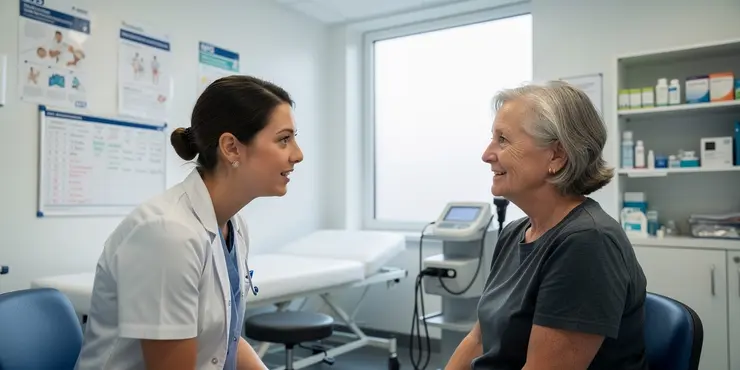
Is there a cure for Crohn's disease?
Relevance: 29%
-

Is Huntington's disease fatal?
Relevance: 29%
-

Is Crohn's disease contagious?
Relevance: 29%
-
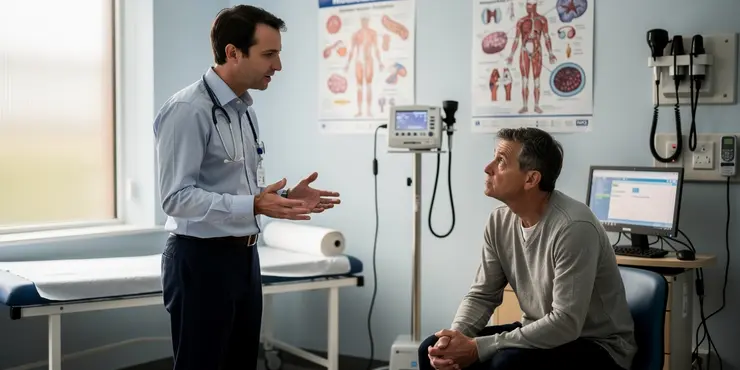
What is Mitochondrial disease?
Relevance: 29%
-
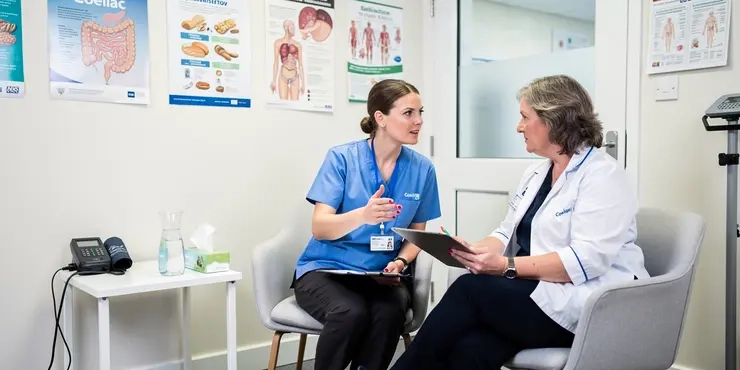
Causes of coeliac disease
Relevance: 29%
-

Can Huntington's disease be prevented?
Relevance: 28%
-
Is motor neurone disease hereditary?
Relevance: 28%
-
What is Parkinson's disease?
Relevance: 28%
Introduction to Mosquito-Borne Diseases Research in the UK
Mosquito-borne diseases are illnesses caused by viruses or parasites transmitted to humans through the bite of infected mosquitoes. While the UK is currently not endemic for many of these diseases, the potential threat due to climate change and global travel has spurred scientific interest in researching these diseases locally. UK researchers are focusing on understanding transmission dynamics, developing diagnostic tools, and exploring control measures.
Transmission Dynamics and Surveillance
The UK is investing in research to monitor the presence and behavior of mosquito populations that could potentially transmit diseases such as West Nile virus, dengue, and malaria. Surveillance projects aim to map the distribution of mosquito species across the UK and assess their vectorial capacity. This helps in understanding how climate change might impact the risk of transmission and the potential geographic range expansion of these species.
Developing Diagnostic Tests
Research efforts are also directed towards creating rapid and effective diagnostic tools for mosquito-borne diseases. These tools are crucial for early detection and control of potential outbreaks. Scientists are working on developing new molecular and serological assays that can quickly identify pathogens in both mosquitoes and infected individuals. This research is vital for enhancing the UK's preparedness and response capabilities.
Control and Prevention Strategies
Controlling mosquito populations is a crucial component of preventing mosquito-borne diseases. UK researchers are exploring innovative control methods, including genetic engineering techniques and the use of biological control agents. There is ongoing research into the development of targeted insecticides and environmentally friendly repellents that could help reduce mosquito populations without harming other wildlife.
Vaccination and Treatment Research
The UK is also contributing to global efforts in developing vaccines and treatments for mosquito-borne diseases. Collaborative research projects aim to test the efficacy of new vaccines in clinical trials and explore novel therapeutic approaches. These initiatives are crucial not only for protecting UK residents but also for contributing to global health solutions.
Public Health Implications
The findings from mosquito-borne disease research in the UK have significant implications for public health policies. By understanding the risks and developing effective control measures, the UK can better prepare for and respond to potential outbreaks. Public health education campaigns informed by research findings also play a significant role in raising awareness and reducing the risk of disease transmission.
Conclusion
While the UK currently faces a relatively low risk from mosquito-borne diseases, proactive research efforts are crucial for mitigating future risks. By investing in surveillance, diagnostic tools, control strategies, and vaccine development, the UK is enhancing its preparedness to deal with potential outbreaks. These research efforts not only protect the UK population but also contribute to global understanding and control of mosquito-borne diseases.
Introduction to Research on Mosquito Diseases in the UK
Mosquito diseases come from germs carried by mosquitoes. These mosquitoes bite people and make them sick. In the UK, these diseases are not common yet. But scientists in the UK are studying them because of changes in climate and lots of people traveling. They want to learn how the diseases spread, make better tests, and find ways to stop them.
How Mosquitoes Spread Diseases and Watching Them
In the UK, people are studying mosquitoes to see where they live and how they behave. Mosquitoes can spread diseases like West Nile virus, dengue, and malaria. Scientists want to make maps to show where these mosquitoes are in the UK. They want to understand how changes in weather might help these mosquitoes spread.
Making Tests to Find Diseases
Scientists are working on making fast and good tests to find diseases from mosquitoes. These tests help find diseases early so people can be treated quickly. Scientists are making new tests that look for germs in mosquitoes and sick people. This is important to keep people healthy and ready for any outbreaks.
Ways to Stop and Prevent Diseases
Stopping mosquitoes is key to preventing diseases. UK researchers are looking at new ways to control mosquitoes. This includes using special science to change mosquitoes and using good bugs that eat mosquitoes. They are also working on safe sprays and lotions that do not harm other animals but keep mosquitoes away.
Research on Vaccines and Treatments
The UK is helping create vaccines and treatments for mosquito diseases. Researchers around the world are working together to test new vaccines and treatments. These efforts are important to protect people in the UK and help everyone around the world stay safe from these diseases.
Health and Safety for Everyone
The research in the UK helps make rules to keep people healthy. By knowing more about mosquitoes, the UK can be ready if there is an outbreak. Teaching people about these dangers with clear information will help everyone stay safe and avoid getting sick.
Conclusion
The UK is not at high risk now, but learning more is vital to staying safe in the future. By studying mosquitoes, making tests, and creating vaccines, scientists are making sure the UK is ready for anything. This research doesn’t just help the UK; it helps everyone understand and fight mosquito diseases.
Frequently Asked Questions
What are mosquito-borne diseases?
Mosquito-borne diseases are illnesses that are transmitted to humans and animals through the bite of an infected mosquito. Examples include malaria, dengue fever, Zika virus, and West Nile virus.
What research is being conducted on mosquito-borne diseases in the UK?
In the UK, research on mosquito-borne diseases includes studying the biology and behavior of mosquitoes, developing new diagnostic tools, exploring vaccine development, and monitoring potential mosquito habitats and populations.
Are there any UK-specific projects focused on mosquito-borne diseases?
Yes, there are UK-specific projects that aim to understand how climate change might affect mosquito populations, as well as projects that target the spread of invasive mosquito species.
Is the UK at risk of mosquito-borne diseases?
While most mosquito-borne diseases are not endemic to the UK, there is a potential risk due to globalization, travel, and climate change increasing the range and survival of mosquito species.
Which organizations in the UK are leading research on mosquito-borne diseases?
Leading organizations include Public Health England, the London School of Hygiene & Tropical Medicine, and various UK universities and research institutes.
How is climate change impacting mosquito-borne disease research in the UK?
Climate change can alter the distribution and population dynamics of mosquitoes, leading to increased research efforts to predict and mitigate potential disease outbreaks.
Are UK researchers collaborating internationally on mosquito-borne diseases?
Yes, UK researchers collaborate with international partners to share data, expertise, and resources, particularly in areas heavily impacted by mosquito-borne diseases.
What is the role of technology in researching mosquito-borne diseases in the UK?
Technology is crucial for developing new diagnostic tools, tracking mosquito populations, modeling disease spread, and creating innovative traps and monitoring systems.
How can citizens be involved in mosquito-borne disease research in the UK?
Citizen science projects, such as reporting mosquito sightings or participating in mosquito monitoring programs, enable public involvement in research efforts.
What preventive measures are being researched to combat mosquito-borne diseases in the UK?
Research includes developing repellents, creating more effective mosquito nets, and exploring genetic engineering techniques to reduce mosquito populations.
Is there any research on vaccines for mosquito-borne diseases in the UK?
Yes, research on vaccines, particularly for diseases like dengue and Zika, is ongoing, although such vaccines are more likely to be developed and initially tested in regions where these diseases are more prevalent.
What role do UK universities play in mosquito-borne disease research?
UK universities contribute to fundamental research, conduct field studies, develop new technologies, and train future scientists in the field of vector-borne disease.
Are there any specific mosquito species of concern in the UK?
Research is focused on monitoring invasive species such as Aedes albopictus, known as the Asian tiger mosquito, which has been seen in parts of Europe and may spread to the UK.
How is data collected for mosquito-borne disease research in the UK?
Data is collected through field studies, laboratory experiments, public health records, and international disease databases.
What is being done to track mosquito populations in the UK?
Efforts include surveillance programs, predictive modeling, environmental monitoring, and the use of traps and molecular tools to identify mosquito species.
How does the UK government support research into mosquito-borne diseases?
The UK government provides funding through research grants, supports international collaborations, and promotes public health initiatives against mosquito-borne diseases.
What is Public Health England's role in mosquito-borne disease research?
Public Health England conducts surveillance, provides expertise and support, and collaborates with researchers to monitor and respond to potential mosquito-borne disease threats.
Are there any innovative methods being researched in the UK to control mosquito populations?
Innovative methods include genetic modification of mosquitoes, sterile insect techniques, and environmentally friendly biopesticides.
How is mosquito vector control research being prioritized in the UK?
Research priorities are set based on factors such as the emergence of new mosquito species, climate change impacts, and predictions of future disease outbreaks.
Where can I find more information on mosquito-borne disease research in the UK?
Information can be found through the websites of Public Health England, university research departments, and scientific journals or conferences.
What are diseases carried by mosquitoes?
Mosquitoes are small flying insects. Some mosquitoes carry germs that can make people sick. These are called mosquito-borne diseases. "Borne" means carried. So, these are diseases carried by mosquitoes.
Some examples of diseases mosquitoes can spread are malaria, dengue fever, and Zika virus.
Ways to stay safe from mosquito bites:
- Wear long sleeves and pants to cover your skin.
- Use mosquito repellent on your skin.
- Sleep under a mosquito net if needed.
Tools to help:
- Ask someone to read this to you if it is hard to read.
- Use pictures or videos to learn more.
Diseases from mosquitoes are sicknesses you can get when a mosquito bites you. The mosquito has to be carrying an illness to give it to you. Some of these illnesses are malaria, dengue fever, Zika virus, and West Nile virus.
It can help to use pictures and videos to understand these diseases better. Listening to audio versions of this text can also make learning easier.
What research are people doing about mosquito diseases in the UK?
Scientists are studying mosquito diseases in the UK. They want to learn how these diseases spread. These studies help find ways to stop people from getting sick.
If you find this hard to read, you can use text-to-speech tools. These tools can read the text out loud for you.
In the UK, researchers study diseases carried by mosquitoes. They learn how mosquitoes live and behave. They create new tools to find out if someone is sick. They try to make new vaccines to stop the diseases. They also keep an eye on where mosquitoes live and how many there are.
Are there projects in the UK about mosquito diseases?
Yes, there are projects in the UK. They want to learn how climate change might change mosquito numbers. There are also projects about new types of mosquitoes that are coming to the UK.
Can mosquitoes make people in the UK sick?
There are some diseases that mosquitoes can carry. These diseases do not usually happen in the UK. But, because people travel a lot and the world is getting warmer, these mosquitoes might come to the UK one day.
Here are some ways to stay safe:
- Wear long sleeves and pants.
- Use bug spray to keep mosquitoes away.
- Keep windows and doors closed or use screens.
- Get rid of any standing water around your home. Mosquitoes lay eggs in water.
Who is studying diseases from mosquitoes in the UK?
Top groups include Public Health England, the London School of Hygiene & Tropical Medicine, and different UK universities and research centers.
How does climate change affect how we study diseases spread by mosquitoes in the UK?
Climate change makes the world warmer. This can change how mosquitoes live and spread. Mosquitoes can carry diseases that make people sick. Researchers want to understand how these changes affect the spread of diseases. To make reading and learning easier, try these tips: - Break information into small, clear parts. - Use pictures to help explain ideas. - Ask someone to explain things if you do not understand. Tools like audio books can also help.Climate change can change where mosquitoes live and how many there are. This might make more people do research to learn about diseases and find ways to stop them.
Do UK scientists work with people from other countries to study diseases spread by mosquitoes?
Yes, researchers in the UK work together with people from other countries. They share data, knowledge, and resources. This is especially important for areas where diseases carried by mosquitoes are common.
How does technology help study diseases carried by mosquitoes in the UK?
Technology is important. It helps us make new tools to check if someone is sick. It also helps us watch where mosquitoes are and figure out how diseases spread. We can use it to make better traps and systems to keep track of mosquitoes.
To understand better, you can:
- Look at pictures and videos about mosquitoes and diseases.
- Ask someone to read it with you or explain it.
- Use apps that help you learn new words.
How can people help with research about diseases spread by mosquitoes in the UK?
Here are some ways people can help:
- Join a study: You can take part in studies that look at how mosquitoes spread diseases.
- Report mosquitoes: Tell scientists if you see lots of mosquitoes in your area.
- Use apps: There are special apps where you can share information about mosquitoes.
If you want to know more or need help, ask a friend or use tools like text-to-speech apps that read out the words for you.
People can help with science projects like telling others when they see mosquitoes or joining mosquito-watching programs. This lets everyone help with important research.
How are people trying to stop diseases spread by mosquitoes in the UK?
Scientists are looking for ways to stop diseases that mosquitoes spread. These actions help keep people safe.
Here are some things they are doing:
- Making places where mosquitoes live smaller, like removing standing water.
- Using sprays to keep mosquitoes away.
- Finding new medicines or shots to stop diseases.
If you want to understand more, you can:
- Ask someone to explain it to you.
- Look at pictures or videos about mosquitoes.
Scientists are working on new ways to keep people safe from mosquitoes. They are making special sprays to keep mosquitoes away. They are also making better nets to stop mosquitoes from biting people when they sleep. Another way is to change mosquitoes so there are fewer of them. Tools that can help you understand more are apps that read text aloud or use pictures to show ideas.
Are scientists in the UK studying vaccines for diseases spread by mosquitoes?
Scientists are working hard to make vaccines. Vaccines help protect us from getting sick. They are studying vaccines for sicknesses like dengue and Zika.
These sicknesses happen more in some places than others. So, tests for these vaccines start in places where people get sick from dengue and Zika more often.
How do UK universities help study diseases spread by mosquitoes?
UK universities work hard to learn about diseases that mosquitoes carry. They want to find ways to stop people from getting sick.
Experts at these universities look at how mosquitoes spread diseases. They think about new ideas and try to find answers.
To understand better, they might use pictures, videos, or simple charts. These can make things clearer for everyone.
If you're interested, try asking questions or looking for easy books about mosquitoes and diseases. You can also use tools like audiobooks to help you understand.
Universities in the UK do a lot of important work. They study diseases that spread by insects and animals. They also create new technologies and teach students to become scientists.
Are there any mosquitoes to worry about in the UK?
Scientists are studying a type of mosquito called the Asian tiger mosquito. This mosquito has been spotted in some places in Europe and might come to the UK.
How do people in the UK find out about diseases from mosquitoes?
Scientists in the UK study mosquitoes to learn about diseases. They use different ways to collect information:
- Trapping Mosquitoes: They set traps to catch mosquitoes. They check what kind they are and if they carry diseases.
- Counting Mosquitoes: People count how many mosquitoes there are in certain areas. This helps understand where there might be more diseases.
- Asking for Help: Scientists ask people to tell them if they see many mosquitoes. This is called a survey.
If you want to help, you can look out for mosquitoes and tell scientists if you see any. You can also use maps and pictures to see where mosquitoes are.
Remember, if you have questions, you can ask a teacher or use a computer to find more information.
We collect data in different ways. We can get information from:
- Studies outside in the real world.
- Experiments done in a lab.
- Health records from hospitals and doctors.
- Big lists of diseases from around the world.
Tools that can help understand this information include:
- Picture books with simple words.
- Dictionaries with easy words.
How do people keep track of mosquitoes in the UK?
We try to keep track of mosquitoes using different methods. We watch them closely, use computer models to guess where they might be, keep an eye on their habitats, and use traps. We also use special tools to find out what kind of mosquitoes are around.
How does the UK government help study diseases spread by mosquitoes?
The UK government gives money to help scientists learn about diseases that mosquitoes spread. This money helps scientists find new ways to stop these diseases. Using pictures and videos can help understand this topic better.
The UK government gives money for research. They help scientists work together from different countries. They also work to keep people healthy from diseases spread by mosquitoes.
What does Public Health England do to study diseases spread by mosquitoes?
Public Health England watches out for diseases spread by mosquitoes. They are experts who help protect people. They work with other researchers to find and stop these diseases.
Is the UK finding new ways to manage mosquito numbers?
Scientists in the UK are looking for new ways to control mosquitoes. These tiny insects can spread diseases. The researchers are trying to find safe and clever ways to reduce mosquito numbers.
To make it easier to understand, you can use tools like picture dictionaries. They show a picture with a word to help you learn. Reading out loud can also help you understand better.
New ways to stop mosquitoes include changing their genes, making them unable to have babies, and using safe sprays that do not harm the environment.
What is the UK doing to study and stop mosquitoes?
We decide what to study based on a few important things. These things include new kinds of mosquitoes showing up, how the weather is changing, and what diseases might spread in the future.
Where can I learn more about mosquito diseases in the UK?
You can look for helpful websites.
Try asking a teacher or a librarian for books.
Talk to a doctor for good advice.
You can also use computer tools that read out information.
You can find information on these websites:
- Public Health England
- University research groups
- Science magazines
- Science meetings
If you need help reading, you can:
- Use a dictionary
- Ask someone to help
- Use a text-to-speech tool
Useful Links
This website offers general information and is not a substitute for professional advice.
Always seek guidance from qualified professionals.
If you have any medical concerns or need urgent help, contact a healthcare professional or emergency services immediately.
Some of this content was generated with AI assistance. We’ve done our best to keep it accurate, helpful, and human-friendly.
- Ergsy carfully checks the information in the videos we provide here.
- Videos shown by Youtube after a video has completed, have NOT been reviewed by ERGSY.
- To view, click the arrow in centre of video.
- Most of the videos you find here will have subtitles and/or closed captions available.
- You may need to turn these on, and choose your preferred language.
- Go to the video you'd like to watch.
- If closed captions (CC) are available, settings will be visible on the bottom right of the video player.
- To turn on Captions, click settings .
- To turn off Captions, click settings again.
More Items From Ergsy search
-

What research is being conducted on mosquito-borne diseases in the UK?
Relevance: 100%
-

Are there any new mosquito-borne diseases emerging in the UK in 2025?
Relevance: 80%
-

What regions of the UK are most affected by mosquito-borne diseases?
Relevance: 78%
-

Is there a season when mosquito-borne diseases are more likely in the UK?
Relevance: 76%
-

Are any vaccines available in the UK for mosquito-borne diseases?
Relevance: 69%
-

What symptoms should I watch for if I suspect a mosquito-borne disease?
Relevance: 61%
-

What diseases are spread by mosquitos in the UK in 2025?
Relevance: 57%
-

Do UK mosquitoes carry diseases?
Relevance: 57%
-
Can mosquitoes transmit any bacterial diseases in the UK?
Relevance: 56%
-

What measures are being taken to prevent mosquito-borne diseases in the UK?
Relevance: 53%
-

How do climate changes affect mosquito-borne diseases in the UK?
Relevance: 51%
-

What should travelers to the UK know about mosquito-borne diseases?
Relevance: 50%
-

What research is being done on Huntington's disease?
Relevance: 47%
-

Are there any government initiatives to control mosquitoes in the UK?
Relevance: 45%
-
Do all mosquitoes in the UK carry diseases?
Relevance: 45%
-

Why is the UK cutting funding to AIDS, Tuberculosis, and Malaria research?
Relevance: 43%
-

How common is Alzheimer's disease in the UK?
Relevance: 41%
-

Can dengue fever be contracted in the UK?
Relevance: 37%
-

Do spiders in the UK carry diseases?
Relevance: 36%
-

Idiopathic pulmonary fibrosis (IPF) research
Relevance: 36%
-

What support is available for people with Crohn's disease in the UK?
Relevance: 35%
-

What research is being done on motor neurone disease?
Relevance: 35%
-

How significant is the reduction in funding for AIDS, Tuberculosis, and Malaria research?
Relevance: 34%
-

What global organizations are involved in Nipah Virus research?
Relevance: 33%
-

What research is being done on the Marburg virus?
Relevance: 33%
-

Is there a risk of yellow fever being spread by mosquitoes in the UK?
Relevance: 32%
-

Are UK mosquitoes capable of transmitting Zika virus?
Relevance: 31%
-
Has research been conducted on the Nimbus variant?
Relevance: 30%
-
Is there research being done on mitochondrial disease?
Relevance: 30%
-

Is there a vaccine for Lyme disease?
Relevance: 30%
-

Can Huntington's disease be cured?
Relevance: 30%
-

Is there a cure for motor neurone disease?
Relevance: 30%
-

Is there a cure for Crohn's disease?
Relevance: 29%
-

Is Huntington's disease fatal?
Relevance: 29%
-

Is Crohn's disease contagious?
Relevance: 29%
-

What is Mitochondrial disease?
Relevance: 29%
-

Causes of coeliac disease
Relevance: 29%
-

Can Huntington's disease be prevented?
Relevance: 28%
-
Is motor neurone disease hereditary?
Relevance: 28%
-
What is Parkinson's disease?
Relevance: 28%


